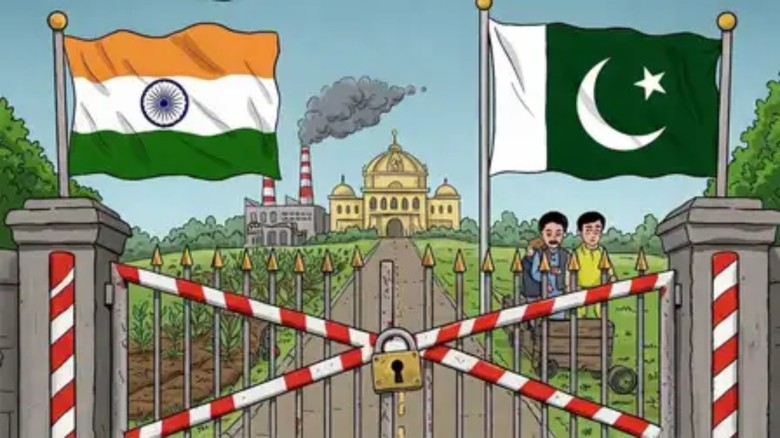India-Pakistan Trade Ends Officially After Pahalgam Attack: Pakistan Faces Rising Costs
Tensions between India and Pakistan have once again escalated following the tragic terror attack in Pahalgam. As a direct consequence, India has officially ceased all trade relations with Pakistan, ending even the limited indirect exchanges that had persisted in recent years.
According to a report by the Global Trade Research Initiative (GTRI), this move will have a serious economic impact on Pakistan. Without direct access to Indian goods, Pakistan will now be forced to import Indian-origin products through third countries such as the UAE, Oman, or Singapore. This rerouting will significantly increase costs, making goods up to 30% more expensive.
Background of India-Pakistan Trade Relations
Trade between the two nations has always been sensitive and easily influenced by political tensions. After the Pulwama attack in 2019, India withdrew Pakistan’s "Most Favoured Nation" status and imposed heavy tariffs. Although formal trade had been suspended since then, some products continued to flow unofficially or through indirect routes.
The Pahalgam incident has now triggered a total shutdown of all forms of trade, signaling a hardening of India's stand against cross-border terrorism.
Impact on Pakistan’s Economy
Pakistan’s industries, particularly textiles, pharmaceuticals, agriculture, and consumer goods, will feel the pinch. Indian products, known for affordability and quality, will now be available only at inflated prices after being rerouted.
This will lead to higher prices for essential goods, worsen inflation, and increase the burden on an already fragile Pakistani economy.
Sectors like healthcare, which depended on affordable Indian medicines and medical equipment, are expected to suffer the most. Everyday consumers will also feel the effects, with basic goods becoming less accessible.
Indirect Trade: A Costly Alternative
While goods will still reach Pakistan via third countries, the added layers of transportation, customs duties, and middlemen fees will drive prices higher. Pakistani businesses might try to absorb some of the costs, but ultimately, the burden will fall on ordinary citizens.
Ironically, even though official trade has stopped, demand for Indian goods remains high in Pakistan — now at a much steeper price.
Conclusion
The official cessation of India-Pakistan trade marks another low point in the countries' troubled relationship. For Pakistan, the economic consequences are immediate and painful. For India, it is a strong message that there will be no compromise on security issues.
Going forward, restoring trade relations would require not just a change in political rhetoric, but a serious commitment to combating terrorism — a prospect that seems distant for now.



.png)

.png)





Leave A Comment